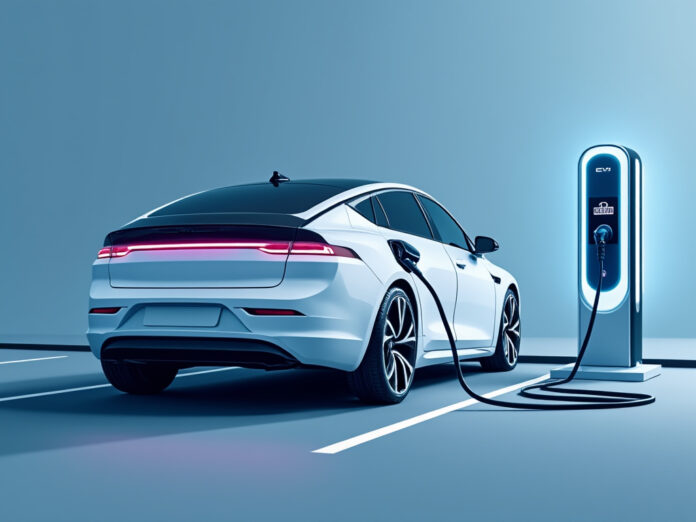ISLAMABAD: Despite nearly half a dozen companies in Pakistan introducing electric vehicles (EVs), the industry struggles to gain momentum, with average monthly sales of only 50 units. This sluggish growth is attributed to a lack of infrastructure, high vehicle prices, and other challenges.
To address these issues and promote EV adoption, the government announced on Thursday its decision to set up charging stations at every fuel station in Islamabad, positioning the capital as a model city for EV readiness.
The impact of this initiative remains to be seen, as automotive companies producing EVs have yet to witness significant demand. Industry insiders point to several barriers, including insufficient charging infrastructure, high electricity costs, an underdeveloped road network, and the elevated price of EVs.
Over the past year, fewer than 600 EVs were sold nationwide, with Japanese automakers yet to fully enter the market. According to the Ministry of Industries and Production, the government is taking major steps to implement its EV policy, starting with the installation of charging stations across Islamabad’s petrol pumps.
During the fourth meeting on the EV Policy, chaired by Federal Minister Rana Tanveer Hussain, progress on various initiatives was reviewed. The minister directed the Capital Development Authority (CDA) to ensure that charging facilities are installed at all petrol stations in Islamabad. He also lauded the CDA’s proactive efforts in this regard.
As part of the EV promotion drive, Rana Tanveer announced free electric bikes for the top 120 students of the Federal Board and a plan to provide 39,000 electric bikes and 19,000 electric rickshaws on subsidized loans. Additionally, the government is working on installing 40 charging stations along motorways and national highways, with a focus on transparency through digitized processes.
The government plans to formally announce its EV Policy soon, aligning with the Prime Minister’s vision of transforming Islamabad into a model city.
The government’s efforts to accelerate EV policy development come amidst the anticipated entry of Chinese automotive giant BYD into the Pakistani market. BYD, in collaboration with Mega Motor Company (MMC)—a subsidiary of the Hub Power Company Limited (Hubco)—is setting up a manufacturing plant near Karachi with an annual capacity of 50,000 units and an investment of approximately $150 million.
Previously, Regal Automobiles Industries Limited introduced Pakistan’s first locally assembled electric sport utility vehicle (SUV), the Seres 3, priced at over PKR 8 million, at its Lahore facility. Meanwhile, Dewan Farooque Motors Limited recently informed the Pakistan Stock Exchange about the assembly of over 100 Horni EV units, which have been handed over to Eco Green Motors Limited for customer deliveries.
Despite these promising developments, industry experts highlight challenges for foreign investors, particularly Chinese companies. High import tariffs imposed by the United States and other nations have prompted Chinese EV manufacturers to explore new markets, including Pakistan. However, sudden policy shifts and unmet government commitments have made potential investors hesitant.
For instance, the government’s efforts to introduce a new EV Policy for 2025-2030—focused on incentivizing completely built units (CBUs) by lowering duties and taxes—overlap with the Auto Industry Development and Export Policy (AIDEP) 2021-2026. Companies that invested under the AIDEP framework, which remains in effect until June 2026, are concerned about the premature introduction of new policies. Such inconsistencies contribute to uncertainty for new entrants in Pakistan’s auto market.
Despite these hurdles, Chinese companies and their local partners remain optimistic about reshaping Pakistan’s automotive landscape. Their determination to shift the market from fossil fuel-powered vehicles to EVs offers a glimpse of a transformative future, provided that the government addresses policy-related concerns and ensures a stable regulatory environment.
























